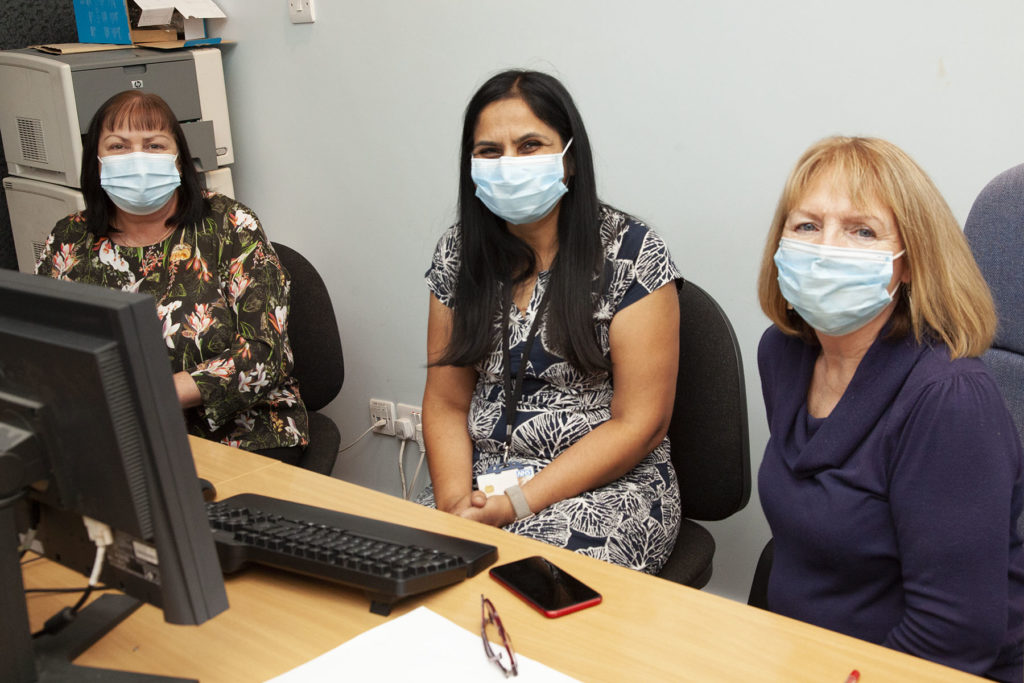By implementing a new electronic referral system, health professionals at the Trust have been able to enhance patient safety and improve timeliness along cancer care pathways, whilst also reducing the amount of administration involved in referring patients for treatment.
Ultimately, the new system means that patients who are found to have cancer, following a referral and diagnostic tests, have their care options discussed by a team of multi-skilled specialists, and receive the most appropriate treatment much quicker – which can often lead to a better and more positive outcome.
Previously at the Trust, there were various methods of referring a patient to these multi-disciplinary teams (MDTs), whether this was by phone call or email and the disparity of these methods sometimes caused delays in the care pathway.
The new referral process integrates two existing computer systems within the Trust. The first is Integrated Clinical Environment (ICE), which is the Trust’s electronic referral system and the second is Infoflex, a cancer management system.
Infoflex is used for tracking cancer patients and recording decisions on patient management taken by the cancer MDT during meetings to discuss appropriate care and next steps. The scheduling and tracking of cancer patients is done via the Infoflex system by trained Cancer Co-ordinators. As a result of the integration, referral by a clinician on ICE, is instantly received into Infoflex, which seamlessly generates a worklist for the co-ordinators to arrange MDT discussions.

Furthermore, when a patient is added to an MDT list, their relevant information is automatically populated from the system, reducing the time needed for manual entry by administrators and, ultimately, improving patient safety with less room for human error.
Dr Neelam Dugar, Consultant Radiologist and Clinical Lead for the ICE MDT Project, said: “The new ICE MDT referral process is improving patient care by way of saving valuable time to start treatments. Receiving a cancer diagnosis can be a worrisome time and the shorter the time between diagnosis and beginning treatment, the better for our patients both medically and for their mental wellbeing.”
ICE is widely used for referrals to other hospital departments, and as such is an easily accessible and familiar platform for the doctors in wards and clinics. This is a first solution of its kind to be developed within the NHS, the project is already having a positive impact on cancer patients in Doncaster and Bassetlaw.
Jackie Simpkin, Cancer Services Manager at the Trust who co-designed the project with Dr Dugar, said: “This new system is saving our clinicians valuable administration time on referring patients into a cancer MDT. This will bring about much needed improvements to our patient care and management of the cancer pathway, ultimately enhancing the care of local people.”
The South Yorkshire and Bassetlaw Cancer Alliance has commissioned Civica’s Infoflex software to develop a single instance of the electronic ‘Single Cancer Management System’. This means that all the Trust’s in the area will have access to relevant data through a shared system and will reduce the amount of administration time when referring patients between specialists at different hospitals.



